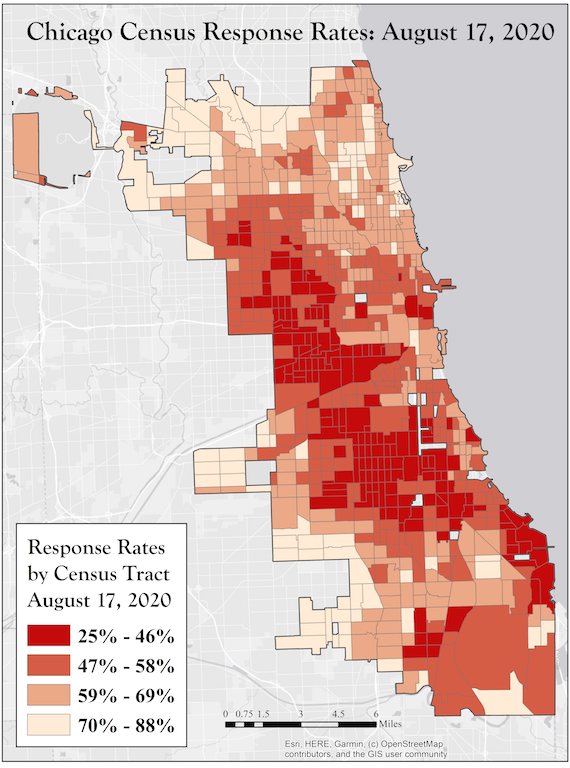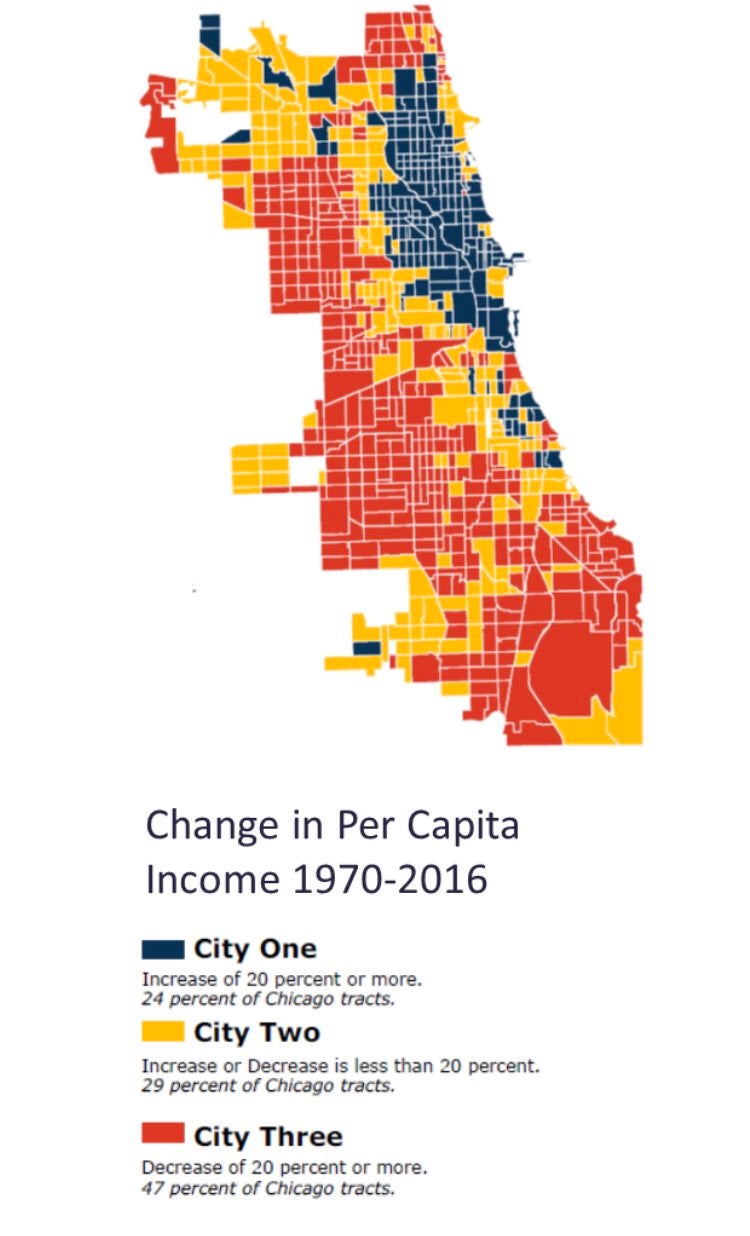Census Sees Disproportionate Response Rate
The U.S. census is underway, and at the UIC Voorhees Center, efforts to target hard-to-count (HTC) populations have been a priority. Some of these populations include students, homeless, elderly, and reentering citizens. “According to the framework for hard-to-count populations developed by federal agencies, hard-to-count populations can be people who are hard to interview because their participation is hindered by language barriers, low literacy, and lack of internet access.”
Census Sees Disproportionate Response Rate Heading link

Black and brown communities in Chicago are reporting lower response rates not only due to these HTC factors, but also widespread mistrust of the government, the early threatening of a citizenship question, ongoing ICE raids, and current economic stressors. To add to these obstacles, HTC population response rate difficulty has been exacerbated due to COVID-19.
Where are these communities that are reporting low response rates? In our Three Cities study, City Three was identified to contain the largest area (nearly half of the city) and has experienced a stark transformation in concentrated wealth and poverty. In 2016, more than half of City Three residents earned less than $35,000 and a third earned less than $20,000 – a per capita income decrease of over 20% since 1970. We have found large overlaps between these populations, low census response rates, and the communities hardest hit by COVID-19.
Census data collection Heading link

As census data collection has now moved up a month to close at the end of September, we urge widespread participation via website, phone, or mail. The political ramifications of being undercounted are serious. The results of the census are used to direct billions of dollars in federal funds to local communities for health care, emergency response, schools, education programs, roads, and other public services. It is also directly tied to political representation. Illinois is at risk of losing one to two seats in the House of Representatives due to decreasing population and high undercounts of HTC populations.
As of August 24th, just 57.9% of Chicago residents had responded to the 2020 census. To address this, the UIC Voorhees Center has created outreach resource toolkits for local census partners to reach hard-to-count populations.
The deep-rooted systemic inequalities in Chicago are reflected in the 2020 census responses, but time isn’t up yet. We still have 35 days to report in the census!